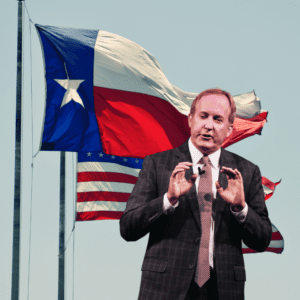Joe Rogan Claims Harris Dodged Cannabis Legalization Topic

Joe Rogan Claims Cannabis Legalization Was Off-Limits for Harris-Walz Interview That Never Happened
The debate over marijuana legalization has become a focal point in modern political discourse, but it appears it was a topic the Harris-Walz campaign wanted to sidestep during discussions for a potential interview on The Joe Rogan Experience. Popular podcaster Joe Rogan, known for his freewheeling conversations with high-profile guests, shared insights on Tuesday about why the sit-down never materialized.
The Backstory: An Interview That Never Was
On the latest episode of his podcast, Rogan revealed that the Harris-Walz campaign had reached out to explore the possibility of Vice President Kamala Harris appearing as a guest. This came after news broke that former President Donald Trump was set to appear on Rogan’s show, which consistently draws millions of viewers.
“I think they had requirements on things that she didn’t want to talk about,” Rogan said. “She didn’t want to talk about marijuana legalization, which I thought was hilarious.”
Ultimately, the interview fell through, with Harris-Walz campaign spokesperson Ian Sams attributing it to scheduling conflicts. However, behind the scenes, the story seems more complex.
Concerns About Progressive Backlash
The Harris-Walz campaign reportedly had internal concerns about the optics of Harris appearing on Rogan’s podcast. According to Jennifer Palmieri, an adviser to second gentleman Douglas Emhoff, progressive staffers worried about potential backlash from left-leaning voters.
“There was a backlash with some of our progressive staff that didn’t want her to be on it, and how there would be a backlash,” Palmieri told the Financial Times.
These concerns highlight the tightrope Harris has had to walk between appealing to progressive voters and addressing criticism of her record, particularly her history as a prosecutor.
Cannabis Legalization: A Contentious Topic
During his conversation with comedian Adrienne Iapalucci on Tuesday’s podcast, Rogan speculated on why marijuana legalization might have been off-limits.
“Because of her prosecuting record,” Rogan suggested, referring to Harris’ tenure as California attorney general and San Francisco district attorney. “She put a lot of people in jail for weed.”
Harris has faced criticism from progressives over her record on marijuana-related offenses. In the 2020 Democratic primary, opponents called out her role in enforcing strict drug laws, which disproportionately impacted marginalized communities.
A Shift in Policy
Despite her past record, Harris has recently championed marijuana legalization as part of her policy platform. Last month, her team rolled out initiatives aimed at courting Black male voters, including support for decriminalizing and legalizing marijuana.
This shift reflects broader trends in public opinion. A 2023 Pew Research Center survey found that more than 60% of Americans support marijuana legalization, including a growing number of Democrats and independents.
Why Rogan Matters in Politics
Rogan’s podcast, The Joe Rogan Experience, is more than just entertainment. With millions of listeners, it has become a cultural touchstone and a platform where politicians can reach diverse audiences.
Rogan’s interviews often stray from conventional media narratives, providing guests with an opportunity to delve deeply into complex topics. For Harris, appearing on the show could have offered a chance to address critiques of her record head-on and connect with a demographic that values authenticity.
However, the risk of missteps or controversy is equally high. Rogan is known for his unfiltered style and willingness to ask challenging questions. For a campaign balancing multiple factions within the Democratic Party, the risks may have outweighed the potential benefits.
The Politics of Cannabis Legalization
Harris’ reluctance to discuss marijuana legalization on Rogan’s podcast underscores the political sensitivity of the issue. While support for legalization is growing, it remains a polarizing topic, particularly among older and more conservative voters.
Harris’ prosecutorial background complicates the narrative. As California attorney general, she oversaw policies that critics argue perpetuated the criminalization of marijuana use. In recent years, however, she has publicly advocated for decriminalization and has highlighted the need for equity in the cannabis industry.
Her shift mirrors a broader trend among Democratic politicians who have evolved on the issue in response to changing public opinion. Still, for some progressives, her past actions remain a point of contention.
Missed Opportunity or Strategic Avoidance?
The decision not to pursue the interview with Rogan has sparked debate over whether the Harris-Walz campaign missed a key opportunity. Appearing on The Joe Rogan Experience could have allowed Harris to reach a broader audience, including independents and disaffected voters who may not typically engage with traditional political media.
At the same time, the campaign’s caution reflects the challenges of modern political messaging. With social media amplifying every soundbite, the risk of backlash from one faction of the electorate can deter bold moves.
Rogan’s Role in the 2024 Election
The controversy surrounding Harris’ potential appearance on Rogan’s podcast is emblematic of the shifting dynamics in political communication. As traditional media outlets lose influence, platforms like The Joe Rogan Experience are becoming increasingly important.
Rogan’s audience is diverse, encompassing conservatives, libertarians, progressives, and apolitical listeners. For politicians, this presents both an opportunity and a challenge. The ability to connect with such a wide-ranging audience is invaluable, but the lack of editorial control means there is little room for error.
A Legacy in Question
For Harris, the discussion about marijuana legalization is part of a broader conversation about her legacy and political future. As vice president, she has worked to balance the expectations of progressives with the realities of governing in a divided nation.
Her willingness—or reluctance—to engage in open discussions about contentious issues like marijuana legalization may shape perceptions of her leadership style and priorities.
The Bigger Picture
The Harris-Walz campaign’s hesitancy to engage with Rogan underscores the complexities of modern political campaigns. With every decision scrutinized and every appearance a potential flashpoint, candidates must weigh the benefits of reaching new audiences against the risks of alienating their base.
In an election cycle defined by cultural and political divides, the question of whether Harris should have appeared on Rogan’s podcast is more than a debate about media strategy. It reflects deeper tensions within the Democratic Party and the broader challenges of navigating a polarized electorate.
As the 2024 election unfolds, marijuana legalization and other hot-button issues are likely to remain at the forefront of political discourse. Whether Harris and other candidates can effectively address these topics—and the criticisms tied to them—will be a key factor in shaping the race’s outcome.
Stay informed about the latest cannabis industry developments with Cannabis Risk Manager.











